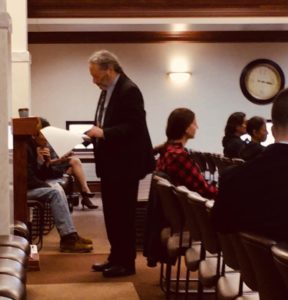The Water Management Board of the South Dakota Department of Environment & Natural Resources (DENR) met on May 8th in Pierre to consider scheduling questions and a limited number of motions regarding permits for the taking of public waters by TransCanada and associated parties for the construction of the Keystone XL pipeline.
TransCanada has applied for three Water Appropriation Permits, and has contracted with two other parties (Wink Cattle Company LLC and Tom & Lori Wilson) to amend their agricultural water rights permits to include the additional use of supplying backup water to proposed pipeline worker camps (man camps). Initially, the permit hearings were to have taken place on May 8th and 9th; however, due to the hard work of several parties contesting these permits, the hearings have been delayed for at least three months, and likely longer.

The Board’s initial action after convening the hearing was to move the motions portion for each permit up to the top of the schedule–and after an all-day hearing, that was the only agenda item actually covered. Rapid City Attorney Bruce Ellison, on behalf of Dakota Rural Action, argued a motion to compel discovery on each of the five permits, and for each of the applicants as well as the Water Rights Program of the DENR. That motion was supported by a number of other parties contesting these permits, some of whom appeared in person (including DRA members Tonia Stands and Julie Santella) and others of whom appeared telephonically.
Discovery, in a legal sense, is the compulsory disclosure, by a party to an action, of relevant documents referred to by the other party.
In this case, Dakota Rural Action has been seeking documents and information related to the KXL water permits, including communications between the applicants and the DENR as well as between the Governor’s office and DENR, any remunerations to associated parties by TransCanada, the locations and amount of water to be used by the four proposed man camps in South Dakota (and two in Montana that may also be supplied with our public water), and the process Chief Engineer Jeanne Goodman used to determine the granting of these permits is a beneficial use of our waters and that it serves the public good.
Individual intervenors Elizabeth Lone Eagle and her children, collectively acting under the name Mniwakan Nakicijinpi, also argued their motion to compel discovery from DENR and TransCanada, specifically related the three permits applied for directly by the company.
Late in the afternoon, after hours of arguments and rebuttals, the hearing came to a close and Hearing Officer Rodney Freeman, Jr. issued a partial order granting, in part, the Lone Eagle motion, and denying, in part, Dakota Rural Action’s motion. Confusingly, Freeman indicated that he was not, in fact, denying discovery, only that he was denying DRA’s motion to compel discovery. Even more confusing, he granted the Lone Eagle motion to compel discovery, but with limitations he indicated would be fleshed out in his written order, which will be posted to the DENR’s contested case page in the near future.
In any case, the day brought South Dakotans a partial win in the fight to protect our public water for future generations. The Water Management Board heard clearly from the parties as well as during public comment period the gravity of this decision and their duty to uphold the public interest. Without the work of all involved, TransCanada would simply have been handed their permits for hundreds of millions of gallons of our water yesterday. Now, the case continues…perhaps even into autumn.
The next Water Management Board meeting is scheduled for July 17th in Pierre, which will cover additional motions and scheduling issues regarding these permits.
Archived audio of the May 8th proceedings can be heard HERE.
If you’d like to follow the KXL water permit contested case documentation, you can do so HERE.
